- Browse
- Java
Java Courses
Java courses can help you learn object-oriented programming, data structures, exception handling, and multithreading concepts. You can build skills in writing efficient algorithms, debugging code, and developing user interfaces. Many courses introduce tools like Eclipse and IntelliJ IDEA, which are commonly used for coding and testing Java applications, along with frameworks such as Spring and Hibernate that facilitate web development and database management.
Popular Java Courses and Certifications
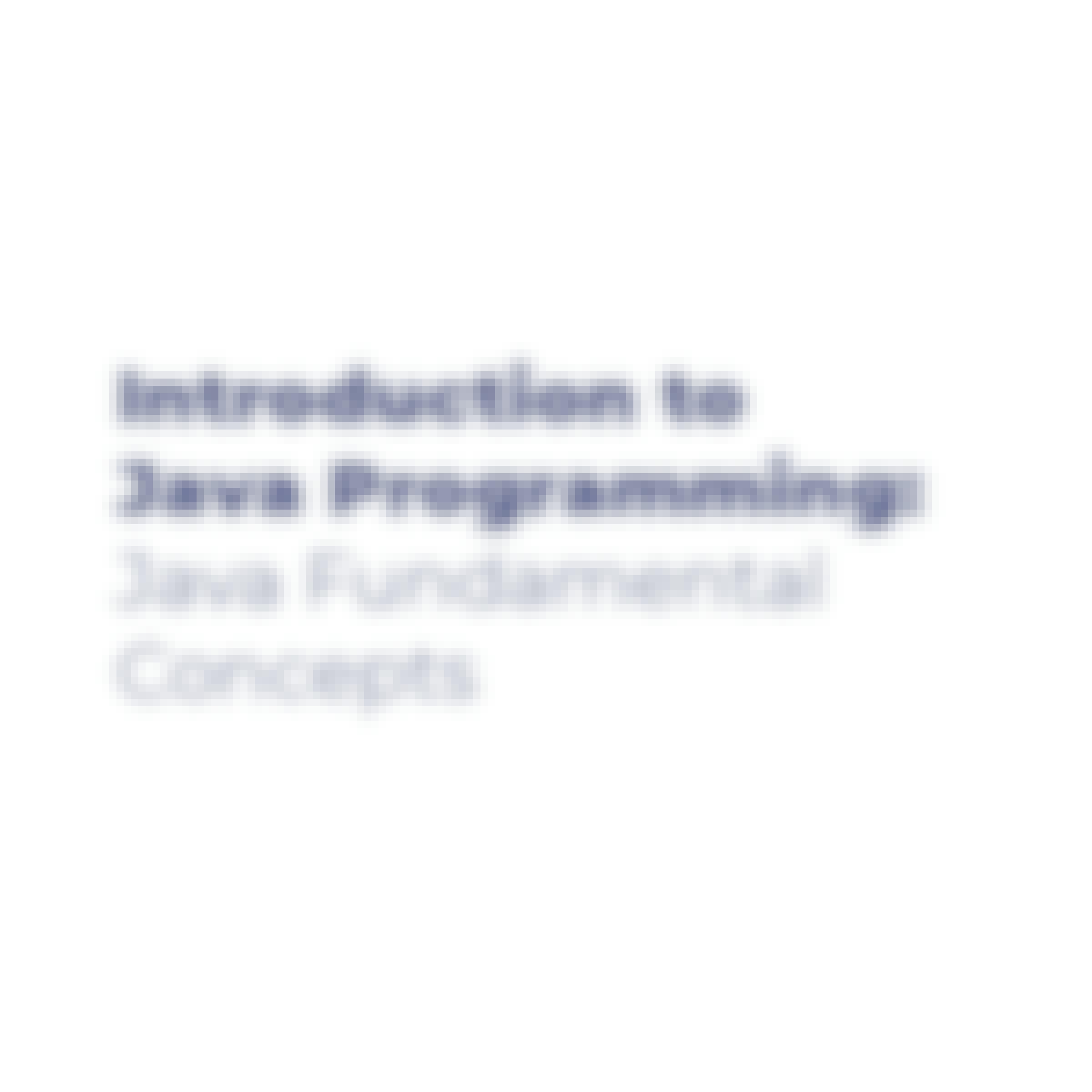
Skills you'll gain: Java Programming, Java, Integrated Development Environments, Mobile Development, Computer Programming, Programming Principles, Object Oriented Programming (OOP), Debugging, Data Structures
4.4·Rating, 4.4 out of 5 stars178 reviewsBeginner · Guided Project · Less Than 2 Hours
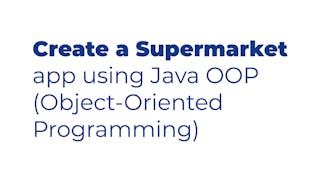
Skills you'll gain: Object Oriented Programming (OOP), Java, Java Programming, Software Design, Software Testing, Application Development
4.5·Rating, 4.5 out of 5 stars112 reviewsIntermediate · Guided Project · Less Than 2 Hours

Skills you'll gain: Java, Mobile Development, Java Programming, Object Oriented Programming (OOP), Application Frameworks, Android Development, Application Development, Program Development, Software Development
4.6·Rating, 4.6 out of 5 stars70 reviewsIntermediate · Guided Project · Less Than 2 Hours
 Status: FreeFree
Status: FreeFreeSkills you'll gain: Cascading Style Sheets (CSS), Hypertext Markup Language (HTML), Web Development, HTML and CSS, Web Design and Development, Javascript, Front-End Web Development, Web Content, Responsive Web Design, Web Design
4.3·Rating, 4.3 out of 5 stars129 reviewsIntermediate · Guided Project · Less Than 2 Hours
 C
CCoursera
Skills you'll gain: Object Oriented Programming (OOP), Java, Object Oriented Design, Java Programming
4.6·Rating, 4.6 out of 5 stars53 reviewsIntermediate · Guided Project · Less Than 2 Hours
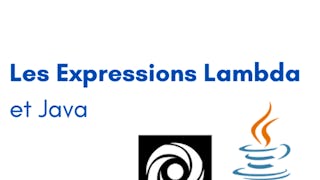 C
CCoursera
Skills you'll gain: Java, Java Programming, Algorithms, Computational Thinking, Programming Principles, Object Oriented Programming (OOP), Computer Programming, Functional Design, Development Environment
4.6·Rating, 4.6 out of 5 stars12 reviewsBeginner · Guided Project · Less Than 2 Hours
What brings you to Coursera today?
 C
CCoursera
Skills you'll gain: Application Design, Application Development, UI Components, Event-Driven Programming, Integrated Development Environments, Java Programming, User Interface (UI), Java, Software Design
4.5·Rating, 4.5 out of 5 stars21 reviewsIntermediate · Guided Project · Less Than 2 Hours
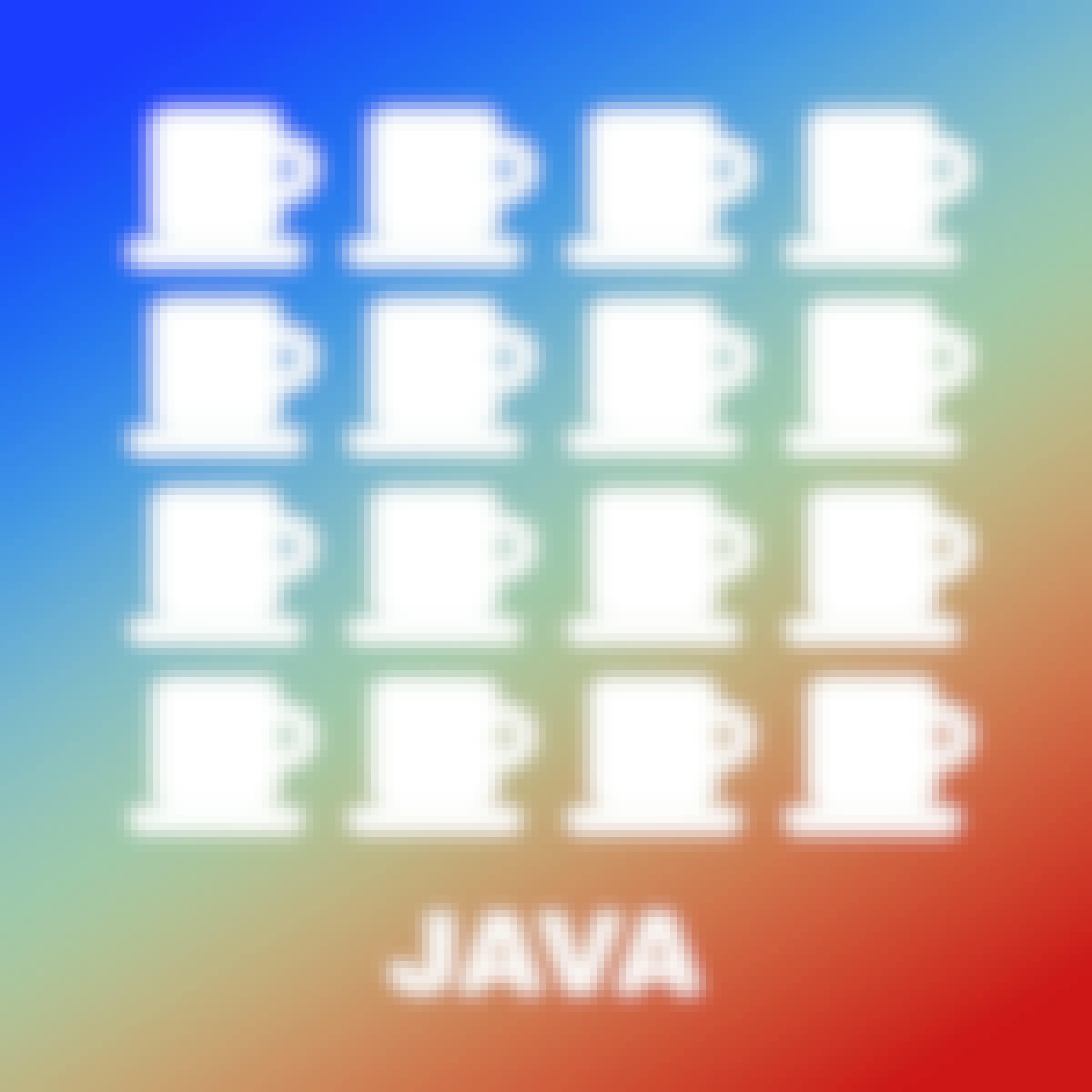 C
CCoursera
Skills you'll gain: Java, Application Development, Java Programming, Software Engineering, Microsoft Visual Studio, Algorithms
4.4·Rating, 4.4 out of 5 stars10 reviewsIntermediate · Guided Project · Less Than 2 Hours
 Status: FreeFree
Status: FreeFreeSkills you'll gain: JSON, Restful API, HTML and CSS, Web Design, Cloud API, Hypertext Markup Language (HTML), Web Development, Cascading Style Sheets (CSS), Web Applications, Responsive Web Design, Real Time Data, Javascript
4.2·Rating, 4.2 out of 5 stars40 reviewsIntermediate · Guided Project · Less Than 2 Hours
 C
CCoursera
Skills you'll gain: Data Preprocessing, Java, Data Structures, File I/O, Java Programming
4.6·Rating, 4.6 out of 5 stars20 reviewsIntermediate · Guided Project · Less Than 2 Hours

Skills you'll gain: Selenium (Software), Test Script Development, Test Automation, Eclipse (Software), Software Testing, UI Components, Integrated Development Environments, Web Applications, Java, Functional Testing
4.5·Rating, 4.5 out of 5 stars362 reviewsBeginner · Guided Project · Less Than 2 Hours
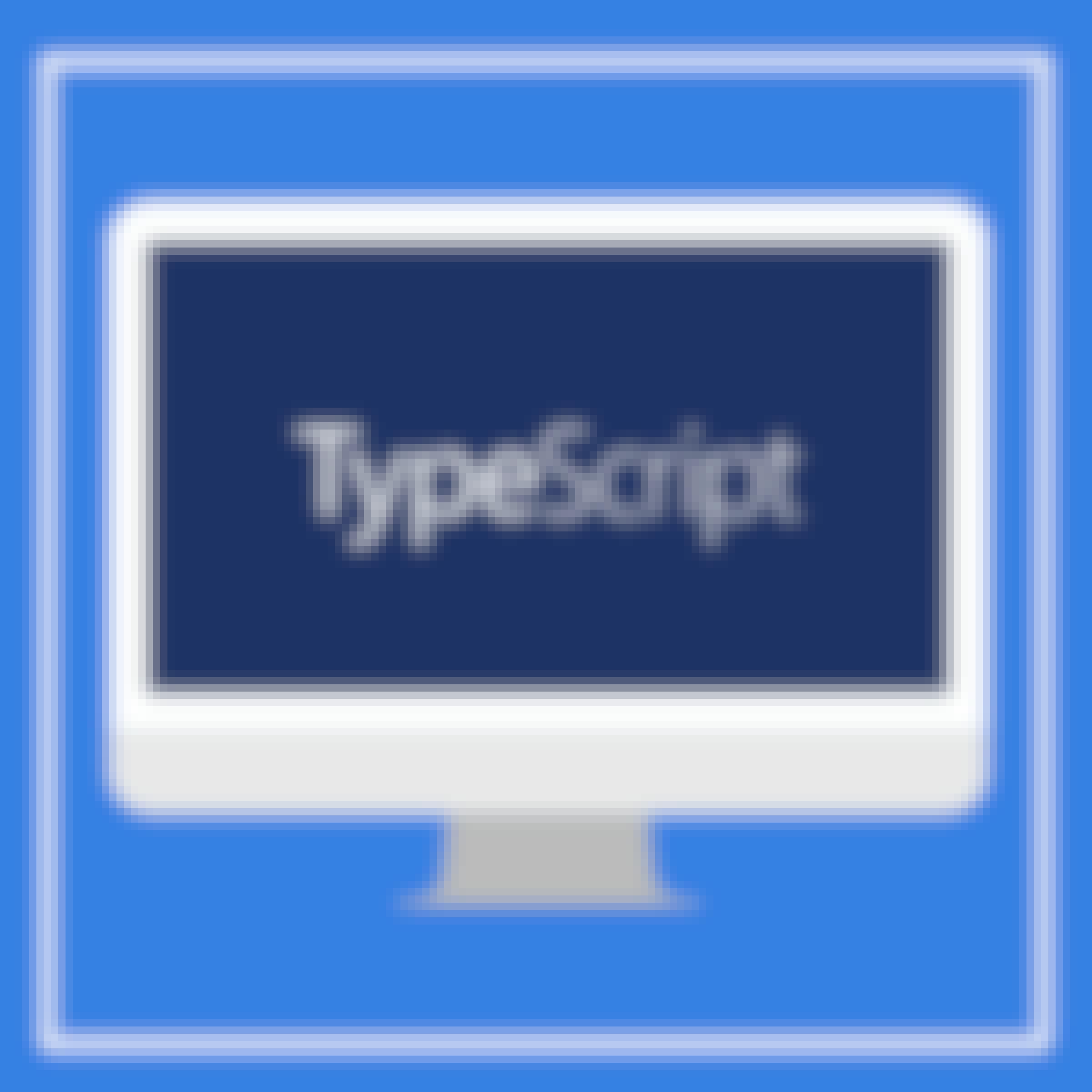 C
CCoursera
Skills you'll gain: TypeScript, Programming Principles, Web Development Tools, Javascript, Web Language
4.4·Rating, 4.4 out of 5 stars101 reviewsBeginner · Guided Project · Less Than 2 Hours
In summary, here are 10 of our most popular java courses
- Introduction to Java Programming: Java Fundamental Concepts: Coursera
- Create a Supermarket app using Java OOP: Coursera
- Intermediate Object-Oriented Programming with Java: Coursera
- Build a Portfolio Website with HTML, CSS, and JavaScript: Coursera
- Java Classes and Objects: Coursera
- Les Expressions Lambda et Java: Coursera
- Build Your First GUI App With Java: Coursera
- Java for Beginners: Loops & Arrays: Coursera
- Build a Website using an API with HTML, JavaScript, and JSON: Coursera
- Java Built in Data Structures: Coursera
Frequently Asked Questions about Java
Java is a versatile, high-level programming language that has become a cornerstone of modern software development. Created in the mid-1990s, Java is known for its portability across platforms, thanks to the Java Virtual Machine (JVM). This means that Java applications can run on any device that has the JVM installed, making it a popular choice for web applications, mobile apps, and enterprise-level software. Its importance lies in its widespread use in various industries, including finance, healthcare, and technology, as well as its role in developing Android applications and large-scale systems.
A variety of job opportunities are available for those skilled in Java. Common roles include Java Developer, Software Engineer, Backend Developer, and Application Developer. Additionally, positions such as Java Architect and Java Consultant are also in demand, especially for those with experience in enterprise applications. Companies often seek Java professionals for their ability to build robust, scalable applications, making this skill set highly valuable in the job market.
To learn Java effectively, you should focus on several key skills. First, understanding the basics of programming concepts such as variables, control structures, and data types is essential. Next, familiarize yourself with object-oriented programming principles, which are fundamental to Java. Additionally, learning about Java libraries and frameworks, such as Spring and Hibernate, can enhance your development capabilities. Familiarity with databases and version control systems like Git will also be beneficial as you progress in your Java journey.
There are numerous online courses available to help you learn Java. Some of the best options include the IBM Java Developer Professional Certificate and the Core Java Specialization. These programs cover a range of topics from foundational concepts to advanced techniques, providing a comprehensive learning experience tailored to different skill levels.
Yes. You can start learning Java on Coursera for free in two ways:
- Preview the first module of many Java courses at no cost. This includes video lessons, readings, graded assignments, and Coursera Coach (where available).
- Start a 7-day free trial for Specializations or Coursera Plus. This gives you full access to all course content across eligible programs within the timeframe of your trial.
If you want to keep learning, earn a certificate in Java, or unlock full course access after the preview or trial, you can upgrade or apply for financial aid.
To learn Java, start by choosing a structured course or specialization that fits your current skill level. Begin with the basics, focusing on syntax and fundamental programming concepts. Practice coding regularly to reinforce your learning, and consider working on small projects to apply what you've learned. Utilize online resources, forums, and communities to seek help and share your progress. As you gain confidence, gradually explore more advanced topics and frameworks.
Java courses typically cover a range of topics, including basic syntax, control structures, data types, and object-oriented programming principles. Advanced courses may explore into frameworks like Spring, database connectivity, and software design patterns. Additionally, many courses incorporate hands-on projects to help you apply your knowledge in real-world scenarios, enhancing your learning experience.
For training and upskilling employees, the Java FullStack Developer Specialization and the Java Development Deep Dive Specialization are excellent choices. These programs provide comprehensive training that covers both front-end and back-end development, equipping employees with the skills needed to tackle a variety of Java-related projects effectively.










